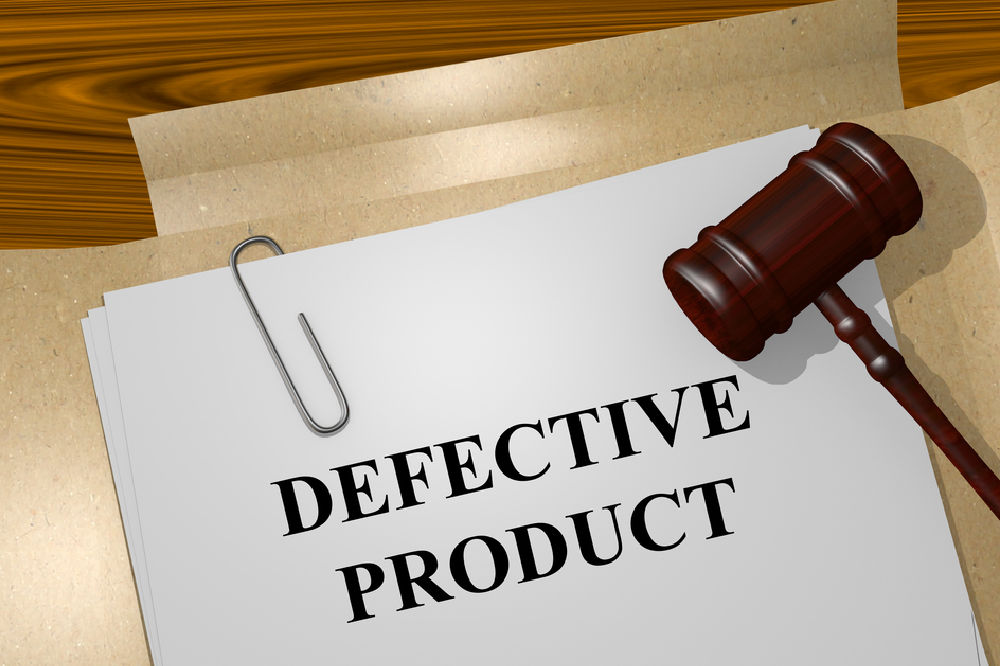Many defective product lawsuits end up in news headlines. This is because it is often possible for damage caused by defective products to affect multiple people. It is also because some defects lead to catastrophic injuries or even death. The amounts awarded in successful defective product lawsuits tend to be eye-opening since judges and juries seek not only to right a wrong financially by awarding compensatory damages to the victims but also to send a clear message to the guilty business or company by awarding hefty punitive damages.
A few days ago, a jury in Georgia levied $1.7 billion in punitive damages against Ford Motor Company eight years after a tragic rollover accident took the lives of a married couple. The suit was brought on behalf of the couple’s children and succeeded because their attorney proved that Ford knew that the roofs of their 2002 Ford F-250 trucks had design issues and were likely to cave in during rollover crashes. The lawsuit was a product liability case because it involved a defective product.
Most product liability cases are worth far less money than the one described above. However, they do all involve defective products, and there is a clear legal definition for exactly what comprises a defective product.
Defective products are defined in Indiana’s Product Liability Act, found in IC 34-20-1-1, IC 34-20-1-2, IC 34-20-1-3, and IC 34-20-1-4. They cause “physical harm…to the user or consumer or to the user or consumer’s property.”
The product must have been sold to the consumer without anyone else making changes to it. For example, if your uncle changed the internal workings of his gas barbecue before selling it to you and it then blew up as a result of his tinkering, the original manufacturer of the barbecue could not be held liable for your injuries.
A reasonable person could not have been able to foresee the problem with the product.
You used the product in the way that it was intended to be used. For example, it would not be the manufacturer’s fault if you hurt yourself by climbing into your washing machine and going through the cycle; however, it would be the manufacturer’s fault if you mangled your arm on a defective machine part while removing your clothes from the interior.
There are three ways that products may be defective:
Design Defect
There may be a product defect in the design (as in the Ford case explained above).
In another recent case (August 2022), a jury upheld a verdict of $3.55 million that was awarded to an Iowa woman who had to have a second hip replacement surgery because the design of the first hip implant had been fundamentally flawed. Her lawyer was able to prove that the manufacturer had prematurely marketed the untested product despite warnings that it might not be safe.
Manufacturing Defect
There may have been a defect in the manufacturing of the product. This is different from an actual design flaw; it means that something went wrong along the way. Perhaps a piece of the product was faulty, or perhaps (in the case of food or medicine), the product was contaminated in some way. One recent case involves a mother in Florida who has filed a lawsuit against Abbott Laboratories for knowingly selling baby formula (Similac) that was contaminated with salmonella and which caused her infant son to become ill enough to need 10 days of hospitalization.
Failure to Warn
Another example of a defective product is one that lacks necessary warnings on its labeling. This would apply if you became ill after taking two medications that shouldn’t have been mixed, but that had no warnings indicating this on their packaging. It is the reason you hear a very soft and incredibly fast-talking voiceover in the background of pharmaceutical commercials. It is also the reason that Whole Foods recently recalled their Creamy Caesar Salad Dressing, not because there was anything inherently wrong with the product, but because it contained soy and wheat products that weren’t on the label. This could cause disaster for an unwitting person with allergies to those substances.
It is not necessarily easy to prove a defective product claim in Indiana, especially since many of them are against huge corporations or insurance companies with deep enough pockets to hire infinite lawyers, but an experienced defective product lawyer will be able to advise you on the strength and viability of your case.
It’s important to note that in some circumstances, the seller or manufacturer may not be held responsible, according to Indiana Code:
- If you had been informed about the defective nature of the product but ignored warnings and used it anyway.
- If you didn’t use the product in the way it was designed to be used or for the purpose it was sold for.
- If you changed the product in some way, and this alteration is what made it dangerous.
- If you miss the deadline for filing your lawsuit under the statute of limitations.
- In Indiana, you must file a product liability lawsuit within 10 years of receiving the product or within 2 years of an injury, illness, or death caused by the defective product. This provision helps people who have been sickened over a period of time, such as with asbestos poisoning, where the cause may not be immediately apparent.
Indiana’s Premier Defective Product Attorneys Are Here For You
At Crossen Law Firm, we provide each client with a free consultation to help them explore their legal options. In addition, we do not charge any fees unless we win. Our Indianapolis defective product lawyer can help you move forward with your claim.
Give us a call today at (317) 401-8626 to discuss your case with our skilled defective product attorney.

 317-401-8626
317-401-8626 
.jpg)